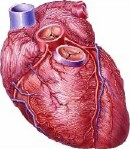
THURSDAY, Dec. 15 (HealthDay News) — Reusing pacemakers from dead patients is safe and effective, according to a new study.
It involved 53 heart patients in Mumbai, India, who received pacemakers donated by the families of deceased American patients. The pacemakers were sterilized before they were implanted in the Indian patients.
After receiving the pacemakers, all the patients were alive and doing well, according to Dr. Gaurav Kulkarni, currently of Loyola University Medical Center, and colleagues.
During two years of follow-up, there were no infections or other major complications and none of the pacemakers failed. All but two patients reported significant improvements in their symptoms. All four patients who were previously employed returned to work, and 27 female patients said their symptoms improved enough that they could resume household chores.
The study appears online and in an upcoming print issue of the American Journal of Cardiology.
The Indian patients had severe heart rhythm disorders called complete heart block and sick sinus syndrome, which left them gasping for breath and exhausted after the slightest physical exertion, the researchers said in a Loyola news release.
Without a pacemaker, the patients would have died within weeks or months. But a pacemaker costs $2,200 to $6,600 in India, far more than the patients could afford.
The pacemaker donations began as a humanitarian project but the physicians involved later decided to conduct a formal study of the safety and effectiveness of the reused pacemakers.
The U.S. Food and Drug Administration prohibit reusing pacemakers in the United States, but no such law exists in India, according to the release.
More information
The U.S. National Heart, Lung, and Blood Institute has more about pacemakers.

